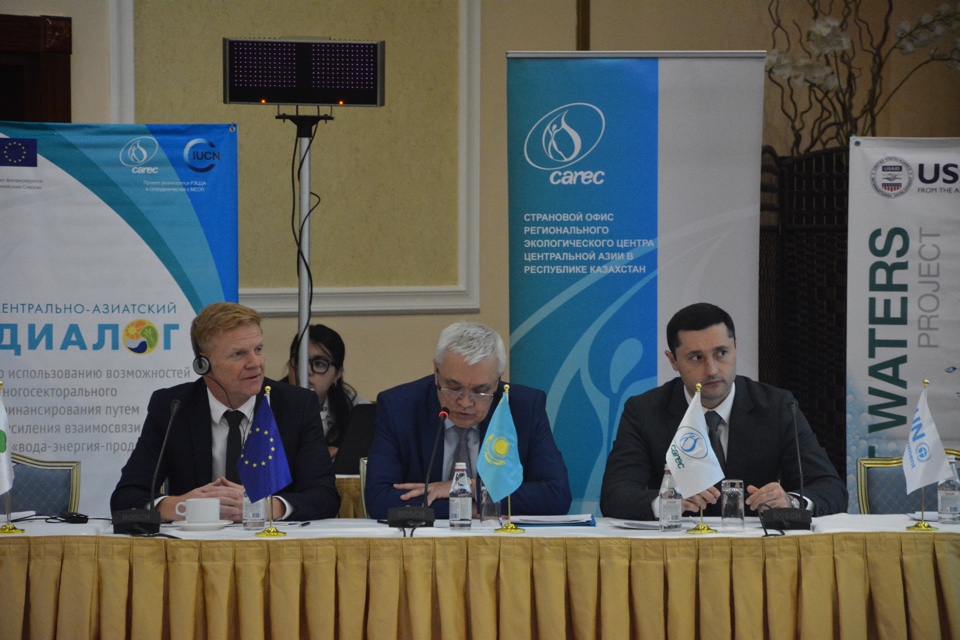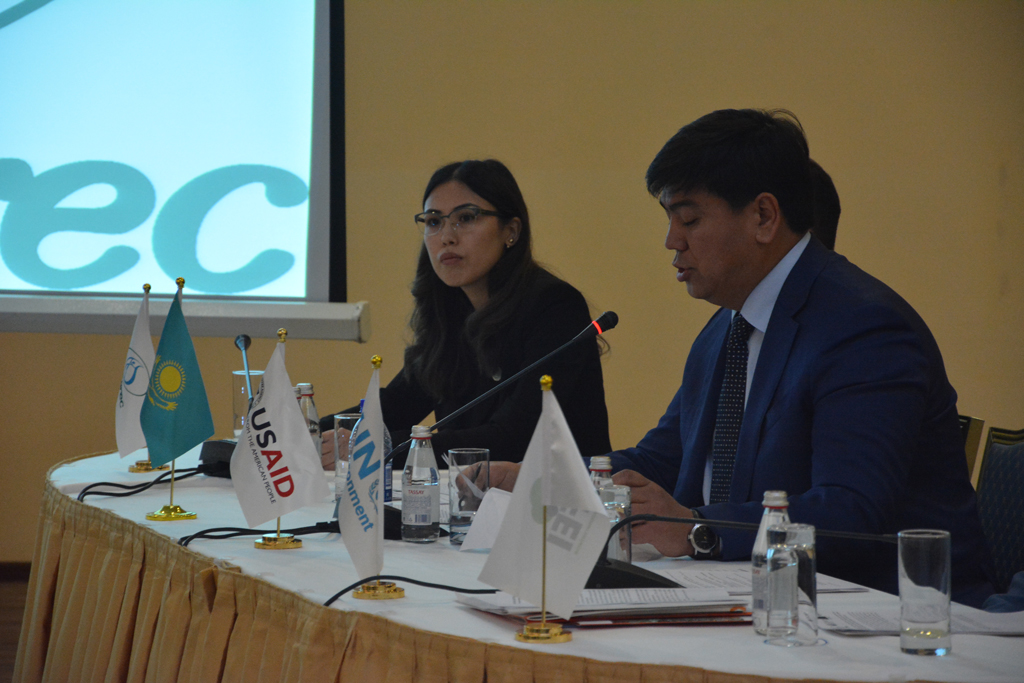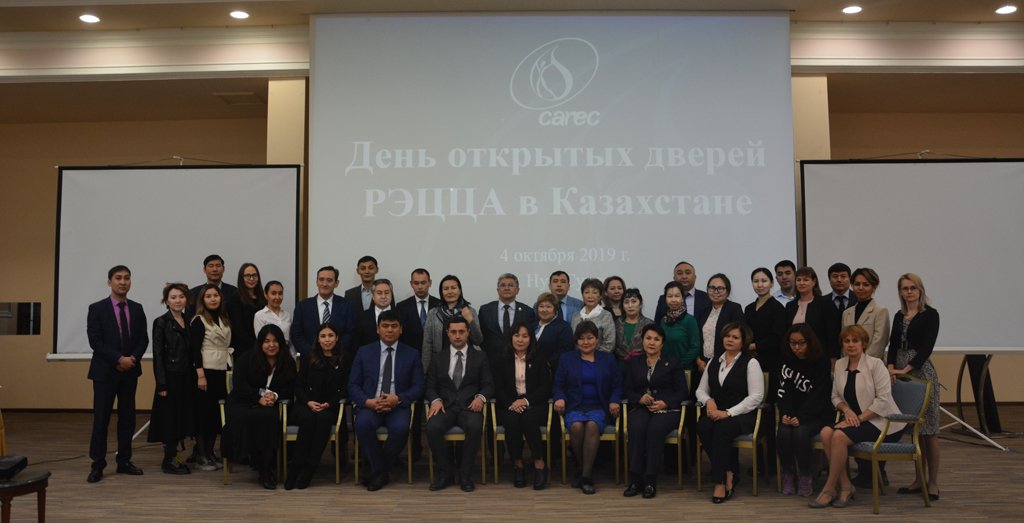
On October 3, 2019, the CAREC Open Day was held in Nur-Sultan with financial support from UNEP. In the framework of the event, a report with findings on evaluation of the fuel efficiency of the motor transport sector in Kazakhstan under the UNEP project “Promoting the Development of Clean Transport in Kazakhstan” was presented to a wider audience.
The event was organized to promote opportunities for cooperation and partnership with national partners, international development partners and the civil society on the matters of environmental protection and sustainable development in Central Asia, as well as to showcase the results of CAREC's activities in Kazakhstan on climate change and energy efficiency, integrated water resources management and environmental protection to achieve the Sustainable Development Goals.
Representatives of the Mazhilis of the Parliament of the Republic of Kazakhstan, European Union Delegation in Nur-Sultan, USAID, the Ministry of Ecology, Geology and Natural Resources and the Ministry of Foreign Affairs of the Republic of Kazakhstan delivered welcoming speeches during the opening of the event. The Open Day was moderated by Mr. Serik Seidumanov, Deputy of the Mazhilis of the Parliament of the Republic of Kazakhstan and Mr. Zulfukhar Zholdasov, Chairman of the Committee for Environmental Regulation and Control.

CAREC presented the main results of the UNEP/CAREC project “Promoting the Development of Clean Transport in Kazakhstan” including:
1) Analysis of the statistical data for the country;
2) Analysis of the strategic documents, legislative acts regulating motor transport in Kazakhstan;
3) Information on the average annual mileage worldwide and calculation of the average annual mileage of motor transport in Kazakhstan;
4) Analysis of the database of cars for the period 2010-2015;
5) Collecting a database of car maintenance costs by brand based on open sources in the Internet;
6) Calculation of scenarios for fuel consumption and CO2 emissions.
As a result of the research, the average values of the fuel efficiency of the entire fleet in dynamics were calculated for the first time, along with the data on average annual car mileage in Kazakhstan. Research revealed that the most effective policy is the fuel taxation, but the established price levels are not sufficient to achieve the goals set by the Global Fuel Energy Initiative.
In addition, 4 main scenarios were developed as possible means to solve the issues:
• The first scenario is designed to determine the maximum level of average fuel consumption;
• The second scenario is aimed to modernize the taxation system of vehicles, increasing the tax on car registration in accordance with CO2 emissions, and providing benefits for the registration of cars with zero CO2 emissions;
• The third scenario also focuses on the taxation system, varying the annual tax on cars in accordance with the emissions of harmful substances into the atmosphere;
• The fourth scenario is aimed to increase the price of fuel and the impact of prices on its consumption.
During the CAREC session on environmental cooperation platforms, CAREC staff made presentations on the regional activities of CAREC in Kazakhstan, namely, the activities of the CAREC water program as a platform for transboundary water cooperation of Central Asian countries: Smart Waters, Blue Peace Central Asia, Regional Working Groups on water quality in Central Asia; Climate change adaptation and mitigation program for the Aral Sea Basin (CAMP4ASB); NEXUS “Central Asia Nexus Dialogue Project: Fostering Water, Energy and Food Security Nexus Dialogue and Multi-sector Investment in Central Asia”, implementation of the Ramsar Convention and its Strategic Plan (2016-2024) in the region and the Central Asian Leadership Program and its role in strengthening the capacities of young leaders from across the region.
One of the important tasks facing Kazakhstan today is the development of a new Environmental Code which is currently being discussed in public. Within the implemented project on transport, CAREC also proposed some recommendations to integrate to the new Environmental Code, which is planned to be submitted to the Parliament of Kazakhstan in December this year.

For reference:
The main objective of the project “Promoting the development of clean transport in Kazakhstan” is to study trends and opportunities for fuel economy in the automotive sector of Kazakhstan. The project can help develop appropriate regulatory measures to promote more efficient vehicles; assessment of current greenhouse gas emissions from road transport, as well as scenarios of subsequent dynamics.
